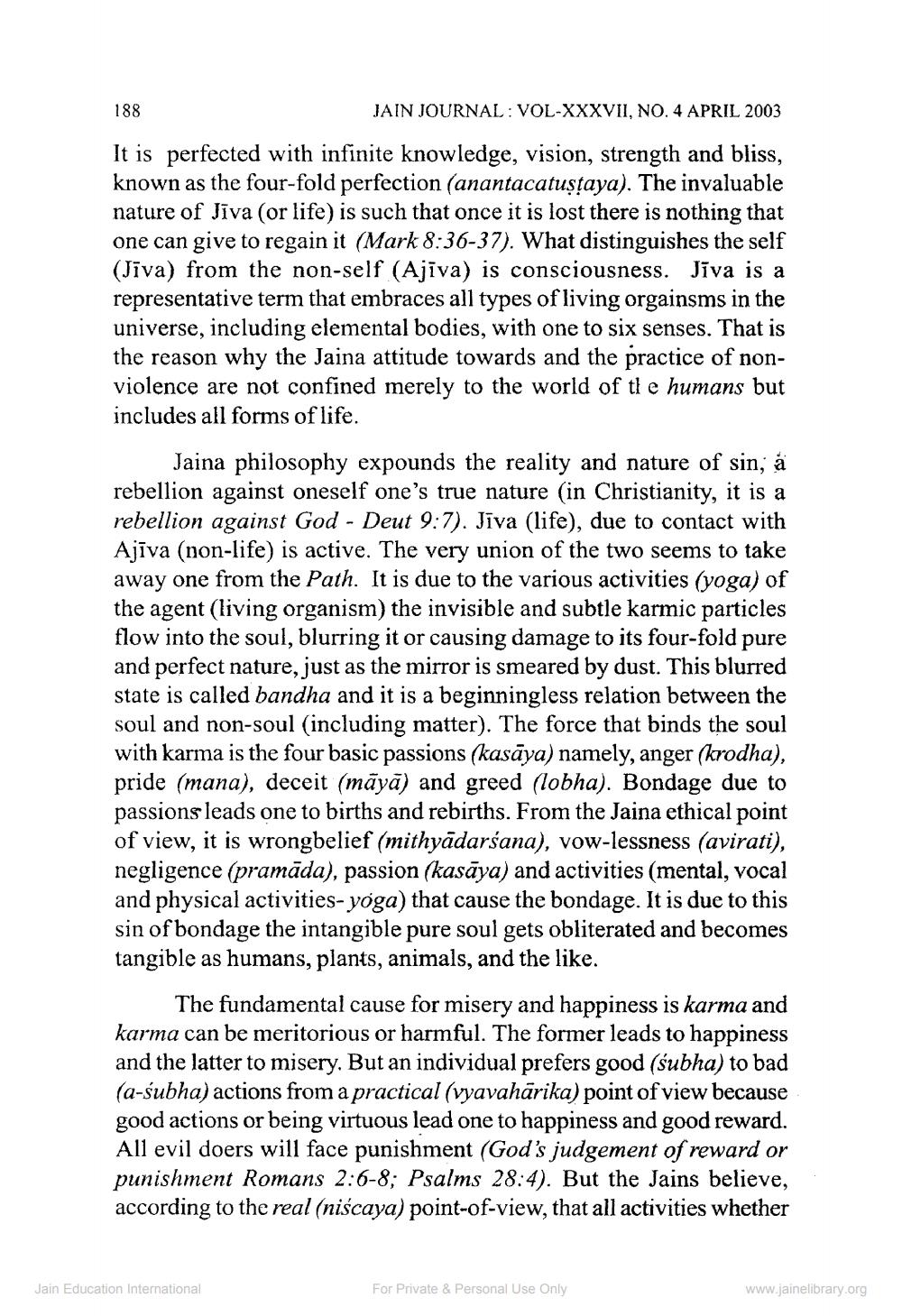________________
188
JAIN JOURNAL VOL-XXXVII, NO. 4 APRIL 2003
It is perfected with infinite knowledge, vision, strength and bliss, known as the four-fold perfection (anantacatuṣṭaya). The invaluable nature of Jiva (or life) is such that once it is lost there is nothing that one can give to regain it (Mark 8:36-37). What distinguishes the self (Jiva) from the non-self (Ajiva) is consciousness. Jīva is a representative term that embraces all types of living orgainsms in the universe, including elemental bodies, with one to six senses. That is the reason why the Jaina attitude towards and the practice of nonviolence are not confined merely to the world of the humans but includes all forms of life.
Jaina philosophy expounds the reality and nature of sin, a rebellion against oneself one's true nature (in Christianity, it is a rebellion against God - Deut 9:7). Jīva (life), due to contact with Ajīva (non-life) is active. The very union of the two seems to take away one from the Path. It is due to the various activities (yoga) of the agent (living organism) the invisible and subtle karmic particles flow into the soul, blurring it or causing damage to its four-fold pure and perfect nature, just as the mirror is smeared by dust. This blurred state is called bandha and it is a beginningless relation between the soul and non-soul (including matter). The force that binds the soul with karma is the four basic passions (kasaya) namely, anger (krodha), pride (mana), deceit (māyā) and greed (lobha). Bondage due to passions leads one to births and rebirths. From the Jaina ethical point of view, it is wrongbelief (mithyādarśana), vow-lessness (avirati), negligence (pramāda), passion (kasāya) and activities (mental, vocal and physical activities- yoga) that cause the bondage. It is due to this sin of bondage the intangible pure soul gets obliterated and becomes tangible as humans, plants, animals, and the like.
The fundamental cause for misery and happiness is karma and karma can be meritorious or harmful. The former leads to happiness and the latter to misery. But an individual prefers good (subha) to bad (a-subha) actions from a practical (vyavahārika) point of view because good actions or being virtuous lead one to happiness and good reward. All evil doers will face punishment (God's judgement of reward or punishment Romans 2:6-8; Psalms 28:4). But the Jains believe, according to the real (niscaya) point-of-view, that all activities whether
Jain Education International
For Private & Personal Use Only
www.jainelibrary.org




